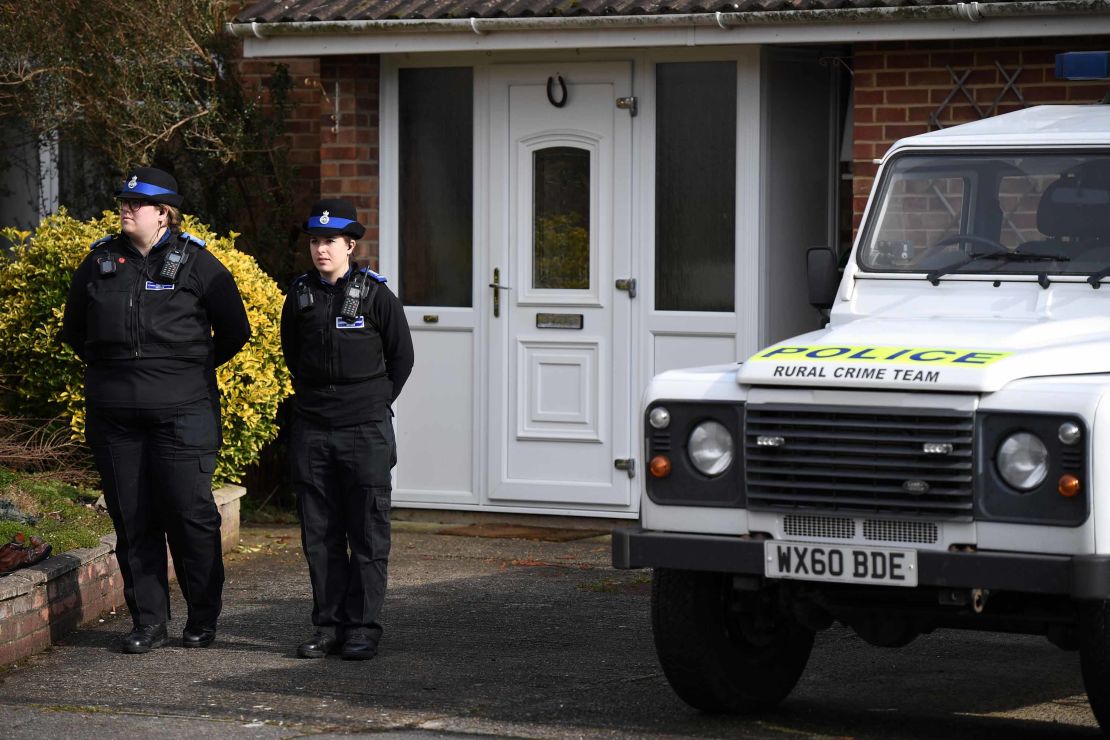Russia has run programs investigating methods of delivering nerve agents, “including by application to door handles,” and is “highly likely” responsible for the poisoning of former Russian spy Sergei Skripal and his daughter Yulia, according to intelligence made public by the UK on Friday.
In a letter to the NATO secretary general, Jens Stoltenberg, UK national security adviser Mark Sedwill says there is “no plausible alternative explanation” for the attack in Salisbury on March 4 that left the Skripals hospitalized.
“Only Russia has the technical means, operational experience and the motive,” he writes.
Police believe the pair first came into contact with the nerve agent, identified by the Organisation for the Prohibition of Chemical Weapons as Novichok, at Sergei Skripal’s home. The highest concentration of the substance was found on the front door.
Yulia was discharged from the hospital earlier this week and is being kept in an unknown location. Her father remains hospitalized but is no longer in critical condition.
Russia has denied all involvement in the incident, which the UK blames on Moscow, and which has led to a spiraling diplomatic dispute between the two nations.
In a statement Thursday, Russian Foreign Ministry spokeswoman Maria Zakharova said the Kremlin “will not take on faith any conclusions regarding the Skripal case until Russian experts are provided with access to the victims themselves, as well as to the materials mentioned in the OPCW’s expert report and the entire volume of information available to London.”

Russia ‘stockpiling Novichoks’
In his letter, Sedwill outlines how the Soviet Union “developed a new class of ‘fourth generation’ nerve agents, known as Novichoks” during the 1980s and Russia was probably the only former Soviet republic to pursue “an offensive chemical weapons programme after independence.”
He identifies a branch of the Russian research institute at Shikhany near Volgograd in southern Russia as being largely responsible for that work. The same facility was named in a report by British newspaper The Times last week as the location where the nerve agent used on the Skripals was manufactured, with the paper citing British security sources.
Mikhail Babich, the Kremlin’s envoy in the Volga Federal District, rejected the report. “All the bases where chemical weapons were stored are well known,” he told Interfax news agency. “Shikhany is not one of them.”
Sedwill goes on to claim that Russia was likely the only former Soviet republic to pursue “an offensive chemical weapons programme after independence.”
“It is unlikely that Novichok could be made and deployed by non-state actors,” he adds.
He then describes how Russia later launched a program to test methods of delivering chemical warfare agents and to train personnel in their use.
“This programme subsequently included investigation of ways of delivering nerve agents, including by application to door handles,” the letter says. “Within the last decade, Russia has produced and stockpiled small quantities of Novichoks under the same programme.”
Defectors seen as ‘legitimate targets’
Regarding the Skripals themselves, Sedwill claims that email accounts belonging to Yulia Skripal were targeted by Russian intelligence agents in 2013, “indicating Russian intelligence service interest in the Skripals.”
“It is highly likely that the Russian intelligence services view at least some of its defectors as legitimate targets for assassinations,” Sedwill writes, alluding to a possible motive for the attack on Sergei Skripal, a former Russian military official convicted of being a British spy.
He argues that “Russia has a proven record of conducting state-sponsored assassination,” referencing the murder of former Russian spy Alexander Litvinenko in 2006. A UK public inquiry concluded there was a “strong probability” the poisoning was directed by the FSB, Russia’s top security agency.
Shortly after the attack in Salisbury, UK Home Secretary Amber Rudd asked police and intelligence agency MI5 to look into further allegations of Russian state involvement in a number of deaths in the UK, prompted by a Buzzfeed report alleging Russian links to 14 suspicious deaths in the UK.
Russia’s ambassador to the UK, Alexander Yakovenko, said on Friday that the claims that his country’s intelligence agencies spied on the Skripals were a “big surprise,” but added that he had not yet seen Sedwill’s letter.
“If somebody was spying, why were the British services not complaining about it, because they always complain if something goes wrong in their country or somewhere else,” he said during a news conference in London.






